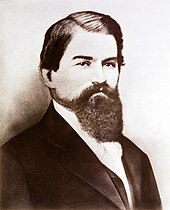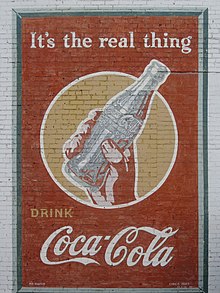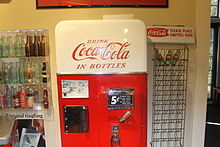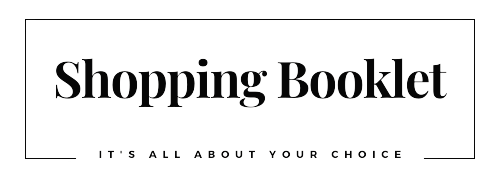Coca-Cola
History
Confederate Colonel John Pemberton was a morphine addict who had been wounded in the American Civil War. He also had a medical degree, so he started looking for an alternative to the troublesome narcotic. Pemberton’s French Wine Coca nerve tonic was first registered in 1885 at his Columbus, Georgia, drugstore, Pemberton’s Eagle Drug and Chemical House. The immensely popular Vin Mariani, a French-Corsican coca wine, may have served as inspiration for Pemberton’s tonic, but the caffeine in the drink comes from the African kola nut. A year before Coca-Cola was really created, in 1885, a Spanish beverage called “Kola Coca” was displayed in a competition in Philadelphia. Coca-Cola acquired the rights to this Spanish beverage in 1953.

John Pemberton, the original creator of Coca-Cola
Pemberton created Coca-Cola, a non-alcoholic variant of Pemberton’s French Wine Coca, in response to the passing of prohibition laws in Atlanta and Fulton County in 1886. Given the widespread support the temperance movement had at the time, the slogan “Coca-Cola: The temperance drink” caught the attention of many consumers. On May 8, 1886, the first sales took place at Jacob’s Pharmacy in Atlanta, Georgia, where a glass cost five cents. Pemberton’s new beverage was marketed and sold as a patent medicine, with Pemberton claiming it was a cure for many diseases, including morphine addiction, indigestion, nerve disorders, headaches, and impotence. At the time, drugstore soda fountains were common in the United States because it was thought that carbonated water was good for health. Pemberton ran the first advertisement for the beverage on May 29 of the same year in the Atlanta Journal.

Three different Coca-Cola brands, distributed by three different companies, were on the market by 1888. On January 14, 1888, Pemberton and four businessmen from Atlanta—J.C. Mayfield, A.O. Murphey, C.O. Mullahy, and E.H. Bloodworth—formed a co-partnership. Asa Candler claimed under oath that he had bought an interest in Pemberton’s business as early as 1887, despite the fact that his claim was not supported by any written documents. The formula could still be used by the other two producers, according to John Pemberton, who claimed that the term “Coca-Cola” belonged to his son Charley.
The fundamental reason Charley Pemberton was permitted to take part as a significant shareholder in his father’s place in the March 1888 Coca-Cola Company incorporation file was due to his history of ownership of the “Coca-Cola” name. Asa Candler had to deal with Charley’s monopoly of the “Coca-Cola” name on a constant basis. Charles Howard Candler, Candler’s eldest son, wrote a book that Emory University published in 1950. Candler notably notes the following in this comprehensive biography of his father: On April 14, 1888, Asa Griggs Candler, a young pharmacist, bought a one-third share of the recipe for Coca-Cola, a proprietary elixir that was almost unknown at the time. The true parties to the transaction were John Pemberton’s son Charley and Walker, Candler & Co.; John Pemberton served as his son’s cosigner. Walker, Candler & Co. acquired Charley’s whole one-third stake in the Coca-Cola Company for $50 down and $500 in 30 days, all while Charley kept the name. Candler purchased half of the Walker/Dozier interest shares after the April 14 agreement on April 17, 1888, for an extra $750.

Believed to be the first coupon ever, this ticket for a free glass of Coca-Cola was first distributed in 1888 to help promote the drink. By 1913, the company had redeemed 8.5 million tickets

This refurbished Coca-Cola advertisement from 1943 is still displayed in Minden, Louisiana.

Early Coca-Cola vending machine at Biedenharn Museum and Gardens in Monroe, Louisiana



